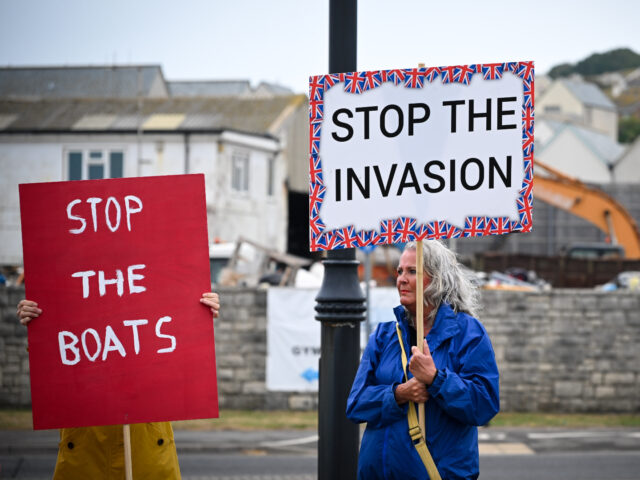‘Cultural Nationalism’, Concern About Migration Listed as ‘Right-Wing Terrorist Ideology’ by UK Anti-Terror Programme

The British government’s anti-terror Prevent program has listed “cultural nationalism” and the belief that Western culture is under threat from mass migration as being indicative of “right-wing terrorist ideology”.
Prevent, a scheme set up in the wake of the Islamist 7/7 London terror attacks in 2005 to de-radicalise potential terrorists, is once again facing accusations of wrongly targeting conservatives and right-wing populists in its latest guidance, The Telegraphreported.
In an online training course intended for government employees at British hospitals, schools, universities, and other public institutions bound by law to flag likely extremists to the programme, Prevent detailed elements which could be a sign that someone has developed an extremist right-wing terrorist ideology.
In addition to white supremacism and white/ethno-nationalism, the anti-terror programme listed “cultural nationalism”, which it defined as the belief that: “Western culture is under threat from mass migration and a lack of integration by certain ethnic and cultural groups.”
Critics warned that with the inclusion of such broadly held views on migration, the anti-terror scheme would become more bogged down by erroneous claims of supposed terror threats from mainstream conservatives, thereby limiting the scheme’s ability to target likely Islamist terrorists.
Prevent has long faced critiques for failing to actually stop terror attacks while disproportionately focusing on alleged right-wing threats.
Indeed, a 2023 independent government report by William Shawcross, which found that “extreme right-wing ideology is often identified within Prevent in a manner that includes populist conservative voices who have nothing to do with violent extremism… Yet when it comes to Islamism only the most violently fascist jihadist groups appear to be identified.”
“All the terrorist attacks across Britain committed since my review was commissioned have been Islamist in nature,” Shawcross said. “But far more people are now being referred to Prevent because of extreme right-wing concerns, and the largest numbers appear to be referred because of mental health concerns and domestic and social ‘vulnerabilities’.”
The report also noted that over half of the terror attacks since 2016 had been committed by individuals who were known to the Prevent programme, meaning that they had failed in their aim of de-radicalisation.
This trend continued last year with Axel Rudakubana, the second-generation migrant who committed a mass stabbing at a children’s dance party in Southport, killing three young girls and injuring 10 others. Rudakubana had been reported to Prevent on three separate occasions prior to committing the horrific attack, yet was dismissed as a threat by authorities each time.
There have also been warnings that by classifying “cultural nationalism” as an indication of extremism, the anti-terror scheme could be used to stifle public debate.
In a letter to Home Secretary Yvette Cooper, Lord Young of Acton, the founder of the Free Speech Union, said: “While not defined in law, nor subject to statutory constraint, the definition in the training course expands the scope of suspicion to include individuals whose views are entirely lawful but politically controversial.
“Now that ‘cultural nationalism’ has been classified as a subcategory of extreme right-wing terrorist ideology, even mainstream, Right-of-centre beliefs risk being treated as ideologically suspect, despite falling well within the bounds of lawful expression.”
The Free Speech Union founder noted that mainstream politicians, including former Tory immigration minister Robert Jenrick and even Prime Minsiter Sir Keir Starmer for his recent speech warning that migration could result in Britain becoming an “island of strangers”, could be considered as potential extremists under the guidelines.
Lord Young warned that people are referred to Prevent for such innocuous views could face “serious, long-lasting consequences” to their educational and career prospects as well as their public reputation.
In response, a Home Office spokesman said: “Prevent is not about restricting debate or free speech, but about protecting those susceptible to radicalisation.”